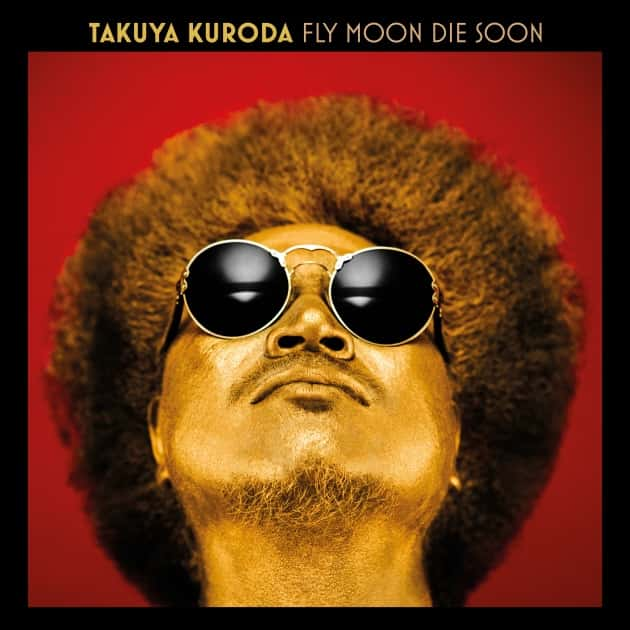MEAWW's Basement Tapes: Jazz trumpeter Takuya Kuroda's 'Fly Moon Die Soon' expands into realms of spirituality

Jazz/funk trumpeter Takuya Kuroda's new album 'Fly Moon Die Soon' sees him soar above his established blend of classic groovy hard-bop and contemporary funk and hip hop, taking him to new heights and delivering an infectious and playful album that fans of Kassa Overall, Thundercat and Moses Boyd will find easy to love.
Kuroda first made his mark with his José James-produced album 'Rising Son' in 2014. The musician and arranger had already delivered a stream of solid albums by that point, including his debut record, 2010's 'Bitter and High', it was his 2014 release that really put Kuroda on the map. Beginning with jam sessions with his high school band back in Kobe, Japan, Kuroda made his way to the U.S. in 2003 and was a course participant at Berklee College of Music before he joined the College of Performing Arts of The New School where he studied Jazz and Contemporary Music. Vocalist José James, Kuroda's study partner and close friend, would eventually work with him on his 'Rising Son' album, and together, the pair would create magic.
On 'Fly Moon Die Soon', however, Kuroda takes his sound to a whole new level. For this record, he freed himself from the constraints of standard tracking with a live band and made hearty use of beats, sampling, overdubs and other studio magic, while also inviting musicians into the studio periodically to collaborate, keeping the collaborative and rough-edged spirit intact on the final product, with Kuroda's crisp trumpet solos providing highlights throughout. The result is a jazz fusion record that, as Mike Hobart of Financial Times puts it, delivers "Slinky soul, sinewy brass and slick hip hop conjure the ghosts of Prince and J Dilla."

Kuroda is a forward-thinking musician that has developed a unique hybrid sound, blending soulful jazz, funk, post-bop, fusion, and hip hop music. For his sixth album 'Fly Moon Die Soon', the artiste wanted to expand beyond music into the realm of spirituality. In his words, "this album is about the irony between the greatness of nature and the beautiful obsceneness of humanity. Melodies and grooves fly back and forth from being spiritual to being vulgar." It took two years to make this album. Speaking about the journey, Kuroda shares, "In 2018, I decided I just couldn't make albums the same way I had been in the past anymore. As a birthday treat to myself, I booked a studio in Brooklyn for two days, with only myself and an engineer, Todd Carder. I brought along some tracks I'd been building at home to see if we could complete them within that time."
He continues, "We began replacing sounds and adding texture, sampling noises from all over the studio; me sipping coffee, hitting a 26" kick drum, speeding up snares. At the end of the two days we were like "wow, I didn't know we could make tracks this good in this way". This is how the process of the full album started. Everything was based on my beats I made at home, inviting musicians in one by one, adding or replacing parts. I was very careful when developing these tracks; just note by note, part by part. I wanted to make the music effectively from a blend of two different recording methods; one very slickly produced part and one very organic part played by live musicians. I remember mixtapes from when I was kid, and wanted to make an album that wasn't just a bunch of flashy singles, trying to catch people's attention in the first 30 seconds, or full of guest features. Instead, I'm essentially just trying to let the grooves breath."

The album consists of nine tracks full of jazz/funk excellence, most notable on uptempo tracks like 'ABC' and 'Moody'. But these also sit effortlessly alongside more soulful jazz cuts like 'Fade' and 'CHANGE', featuring Corey King on vocals. Speaking about working with King, Kuroda shares, "I came up with an interesting chord progression and a nice melody. To make it more powerful, I asked Corey King if he could sing the melody, which is not easy to sing, and he came up with the lyric." The title track is a downtempo groove lead by a heavy Moog bassline, whilst 'Do No Why' contains an infectious piano riff throughout. Aside from Takuya's original compositions, he revisits two classics from Ohio Players ('Sweet Sticky Thing' featuring Alina Engibaryan on vocals) and Herbie Hancock ('Tell Me A Bedtime Story') whilst the album closes with the epic 'TKBK'.
Contemporary jazz fusion is an interesting genre. On the one hand, the layers of sound drawing inspiration from a variety of genres creates something incredibly unique, but on the other hand, the unmistakable undertone of jazz/funk lends a sense of nostalgia. Kuroda, a truly unique talent in his own right, has consistently delivered album after album that serve as a realisation of the evolution of his sound.
'Fly Moon Die Soon' is out now on vinyl and digital via Worldwide Award-winning UK label First Word Records.










